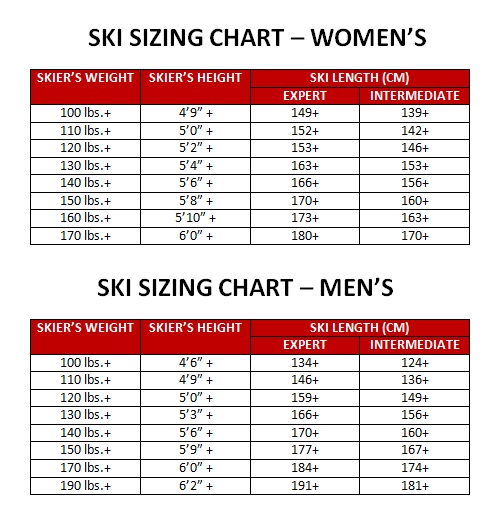Summer is synonymous with sunshine, laughter, and the exhilarating splash of water sports. For those drawn to the thrill of gliding across the lake, water skiing offers an unforgettable experience. But before you hit the water, a crucial question arises: what size water skis are right for me? Choosing the correct size is paramount for both safety and enjoyment, affecting everything from balance and control to speed and maneuverability. This guide will dive deep into the art of selecting the perfect pair, ensuring your time on the water is nothing short of spectacular.
Determining the appropriate water ski length isn't a one-size-fits-all equation. Several factors come into play, including your weight, skill level, and the type of skiing you plan to pursue. A heavier skier will require a longer ski for proper buoyancy and support, while a lighter skier will find shorter skis easier to control. Similarly, a beginner will benefit from wider, more stable skis, while an advanced skier might prefer narrower skis for quicker turns and tricks.
While the concept of water skiing might seem modern, its roots stretch back to the early 20th century. The sport originated in the United States and quickly gained popularity as a thrilling recreational activity. Early water skis were often made of wood and were significantly longer and heavier than today's models. Over time, advancements in materials and design led to lighter, more maneuverable skis, opening up the sport to a wider audience and enabling more complex maneuvers.
The importance of selecting the right water ski size cannot be overstated. Using skis that are too long or too short can lead to a frustrating and potentially dangerous experience. Oversized skis can be difficult to turn and control, increasing the risk of falls and injuries. Undersized skis, on the other hand, may not provide enough buoyancy, making it challenging to stay afloat and maintain balance. Choosing the correct size ensures optimal performance, allowing you to progress and enjoy the sport to its fullest.
Understanding the relationship between ski size and skier weight is fundamental to making the right choice. Most manufacturers provide size charts that correlate weight ranges with recommended ski lengths. These charts serve as a valuable starting point, but it's important to consider your skill level as well. A beginner might opt for a slightly longer ski within their weight range for added stability, while a more experienced skier might choose a shorter ski for increased agility.
Benefits of choosing the correct size:
1. Enhanced Control: Proper sizing allows for greater control and maneuverability on the water.
2. Improved Balance: Skis that are the right size offer optimal buoyancy and stability, making it easier to stay upright and balanced.
3. Increased Enjoyment: When you have the right equipment, you can focus on enjoying the thrill of the ride rather than struggling to stay afloat.
Steps to choosing the correct size:
1. Consult a size chart: Use a manufacturer's size chart as a starting point, matching your weight to the recommended ski length.
2. Consider your skill level: Adjust the recommended length based on your experience. Beginners may prefer slightly longer skis, while advanced skiers may choose shorter ones.
3. Think about your skiing style: If you plan to focus on slalom skiing, you might consider specialized slalom skis.
Advantages and Disadvantages of Knowing Your Ski Size
| Advantages | Disadvantages |
|---|---|
| Improved Performance | Requires Research |
| Increased Safety | Can Be Overwhelming for Beginners |
FAQ:
1. What size water skis do I need if I weigh 150 pounds?
Consult a size chart, but likely between 65"-67".
2. Are there different sizes for kids?
Yes, children's skis are smaller and lighter.
3. What are slalom skis?
Designed for advanced skiers, narrower for sharp turns.
4. Can I use the same skis for wakeboarding?
No, wakeboards are designed differently.
5. How do I care for my water skis?
Rinse with fresh water and store properly.
6. Where can I buy water skis?
Sporting goods stores, online retailers.
7. What are combination skis?
Allow for both slalom and recreational skiing.
8. Can I rent water skis to try different sizes?
Yes, many rental locations offer various sizes.
In conclusion, understanding how to determine the appropriate water ski size is essential for a safe and enjoyable experience on the water. By considering your weight, skill level, and intended skiing style, you can choose a pair of skis that will maximize your performance and allow you to fully embrace the thrill of gliding across the lake. Remember to consult size charts, seek advice from experienced skiers, and prioritize safety above all else. With the right equipment and a little practice, you'll be carving through the water with confidence and creating lasting summer memories.
Finding wellness in the high desert navigating optum locations albuquerque nm
Darkly alluring exploring japanese boy names with evil connotations
Shower and freestanding tub bliss ultimate bathroom luxury
Nordic Ski Pole Size Chart - Khao Tick On
How To Figure Out Your Ski Size at Matthew Powers blog - Khao Tick On
How to Choose Skis Ski Size Chart - Khao Tick On
Size Of Skis Chart - Khao Tick On
How To Measure Downhill Ski Length at Christopher Hart blog - Khao Tick On
Chart For Length Of Skis - Khao Tick On
How To Size Backcountry Skis - Khao Tick On
Ski Board Size Chart - Khao Tick On
How Long Should My Water Skis Be at Allen Corbo blog - Khao Tick On
Downhill Ski Size Chart - Khao Tick On
Sell or Scrap How to Buy Used Skis - Khao Tick On
Cross Country Skis Sizing Chart - Khao Tick On
Cross Country Skis Sizing Chart - Khao Tick On
What Size Nordic Skis Do I Need - Khao Tick On












.jpg)
